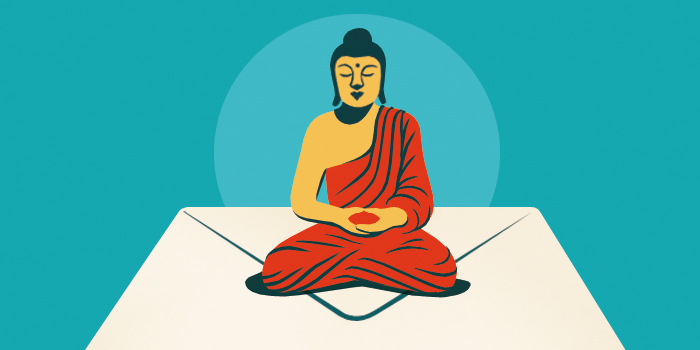Do Buddhists believe we all are one?
It’s widely believed that the idea “all is one” is a core Buddhist tenet, but that actually isn’t the case, at least in the way it’s popularly understood. This may explain, at least in part, why the Dalai Lama himself seemed confused by the punchline of that popular joke “What did the Dalai Lama say to the pizza man?” “Make me one with everything!”
Sometimes Buddhism is referred to as a form of monism, a philosophical term meaning the doctrine that everything derives from a single principle or source. Several monistic philosophies exist that differ in how it is that all is one, and sometimes in what the “all” is. Although it is possible to find Buddhist texts and commentaries that seem to describe a kind of “oneness” behind ordinary reality, a closer look at Buddhist teachings will show that “all is one” is not a Buddhist view.
Some of the confusion arises from a misunderstanding of the Buddhist teaching of dependent origination, or dependent co-arising: the teaching that all phenomena, including all beings, are part of a vast web of dependencies―things come into and go out of existence because of conditions caused by other things. Yet, Buddhist teachers point out, however, that although our existence depends on and is conditioned by other things, we as individuals are still responsible for ourselves and our actions. “By oneself is evil done,” the Buddha said. “By oneself is one made pure.”
In teaching dependent origination, Mahayana Buddhism argued that since nothing exists independently of other things, all beings and phenomena inter-exist. Yet if nothing exists of itself, and everything inter-exists, can’t we conclude that all things are one? It’s not that simple.
Madhyamaka, the “middle way” school of Mahayana, posits a doctrine of the “two truths,” which tells us that existence is both relative (or conventional) and absolute. Phenomena are distinctive in a relative, everyday sense but undistinguishable in absolute reality. The important point is that both kinds of existence are true. It is incorrect to dismiss our individuality as a false reality; the relative is just as true as absolute reality.
It’s certainly true that Buddhist practice encourages us to let go of self-centered views and open ourselves to empathy and compassion for others. As part of that practice we are sometimes encouraged to “be one with” this or that person or group. But we remain individuals inter-existing with other individuals.

Tricycle is more than a magazine
Gain access to the best in sprititual film, our growing collection of e-books, and monthly talks, plus our 25-year archive
Subscribe now